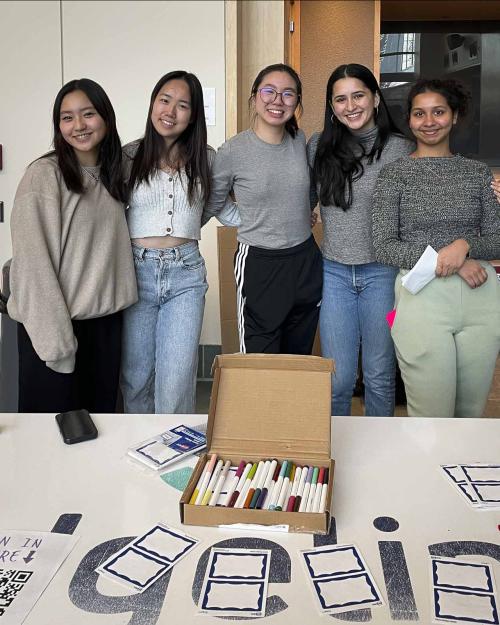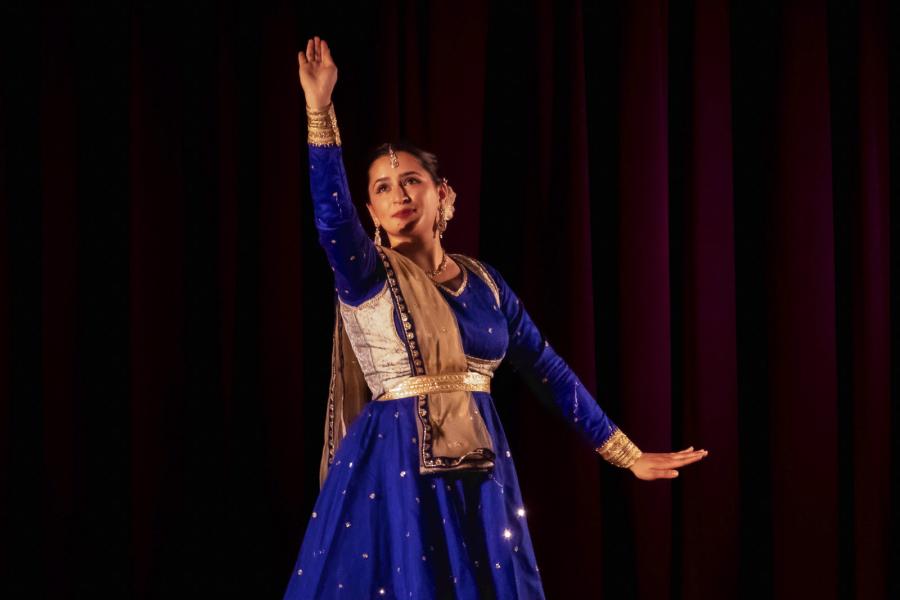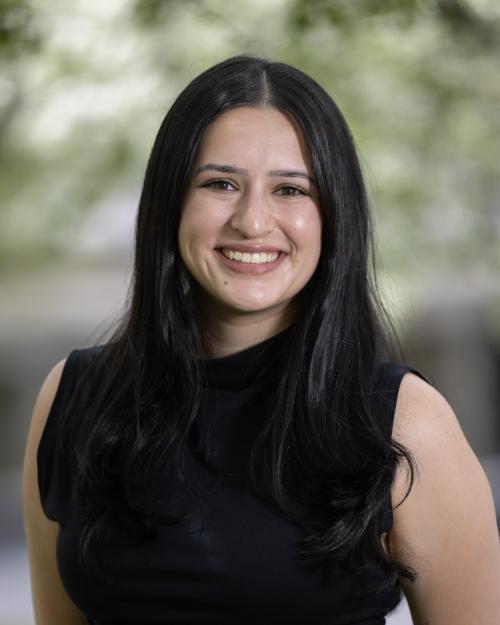Tanvi Namjoshi
Computer Science
Basking Ridge, N.J.
Why did you choose Cornell?
I was drawn to Cornell and the College of Arts & Sciences because of the diversity of studies and the flexible path it offered. I came in as a computer science major, but I was also really passionate about policy and ethics, and at Cornell, these subjects weren’t taught as mutually exclusive but rather two sides of the same coin. As a scholar in the Milstein Program in Technology and Humanity, I saw Cornell’s investment in interdisciplinary studies and have had opportunities to learn from amazing professors who study the social impact of technology. I also believe that the diversity of Cornell’s academic programs draws in a student body that is unmatched – everyone has unique interests and backgrounds that they are invested in and that they are excited to share with you, either through events run by student organizations or simply over lunch.
What is your main extracurricular activity and why is it important to you?

My main extracurricular activity has been serving on the executive board for Women in Computing at Cornell (WICC) where we work to make the computer and information science departments more inclusive and accessible to women and other gender minorities. In WICC, I found a group of women who were excited to give advice about classes, jobs and navigating the college environment. This sense of community is extremely important for women, who are underrepresented in computer science. Through the years I’ve served various roles from faculty relations director, to social chair, to vice president. It has been extremely rewarding to run impactful events and to be a leader supporting other women as they make their visions for the CIS community come to life. My most cherished memory of WICC has been running a program called “Lunch Bunch.” Each week, a group of students has the opportunity to eat lunch with a rotating guest professor, reducing the divide between faculty and students. As a facilitator, I learned about many female professors’ paths to academia, research interests and motivations. Most importantly, hearing their stories, I realized that much about what they loved in computer science resonated with my own interests. This showed me that I would enjoy research – and it led me to start my research journey!
What Cornell memory do you treasure the most?
Taking the final bow at the first Nazaqat showcase during my junior year. It was the culmination of a year of hard work as both a dancer and a leader in the club. Seeing the support of the Cornell community, our alumni and our families made the hours of rehearsals and planning worth it. I have studied Kathak, the Indian classical dance form Nazaqat performs, for 12 years of my life – finding a club at Cornell where I could keep up with my dance practice truly changed my Cornell experience.

What are the most valuable skills you gained from your Arts & Sciences education?
The power to approach problems from different perspectives. As someone in a technical field, my instinct is to look for solutions in formulas and mathematical analysis. However, my humanities classes have taught me to step back and look at how social values and our laws may create or entrench these problems in society. My design thinking classes and independent studies have taught me how to interview those affected by the problem and look for solutions in their answers. And of course, if these techniques reveal that technology could be a part of the solution, my computer science classes have equipped me with the technical skills to innovate.
What have you accomplished as a Cornell student that you are most proud of?
I have participated in research at Cornell through three different departments: government, science and technology studies and computer science. I studied the behavior of candidates under different voting algorithms with Prof. Jon Kleinberg, worked with the Brooks School Tech Policy Institute and explored how generative AI affects art through interviews with local artists. Jumping into research is exciting, but also difficult coming from studying a subject only through coursework. My research journey has included many different fields and methodologies, but I am proud of my work in each project as it has all informed the work I want to do in graduate school.
Every year, our faculty nominate graduating Arts & Sciences students to be featured as part of our Extraordinary Journeys series. Read more about the Class of 2024.




